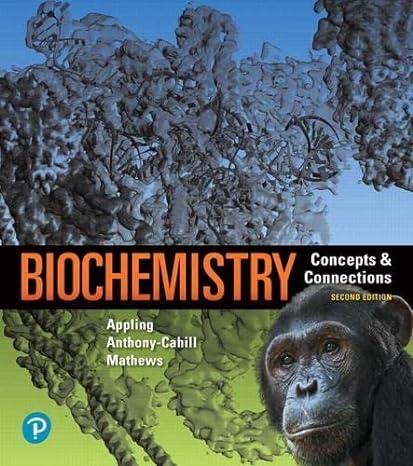Antibodies raised against a macromolecular antigen (e.g., a protein) generally form an antigen-Ab precipitate when mixed with
Question:
Antibodies raised against a macromolecular antigen (e.g., a protein) generally form an antigen-Ab precipitate when mixed with the antigen at roughly equimolar concentrations. However, little to no precipitate forms if the antibody is added in great excess (e.g., 20–fold molar excess) compared to the target antigen. Explain this observation.
Fantastic news! We've Found the answer you've been seeking!
Step by Step Answer:
Related Book For 

Biochemistry Concepts And Connections
ISBN: 9780134641621
2nd Edition
Authors: Dean Appling, Spencer Anthony-Cahill, Christopher Mathews
Question Posted:





